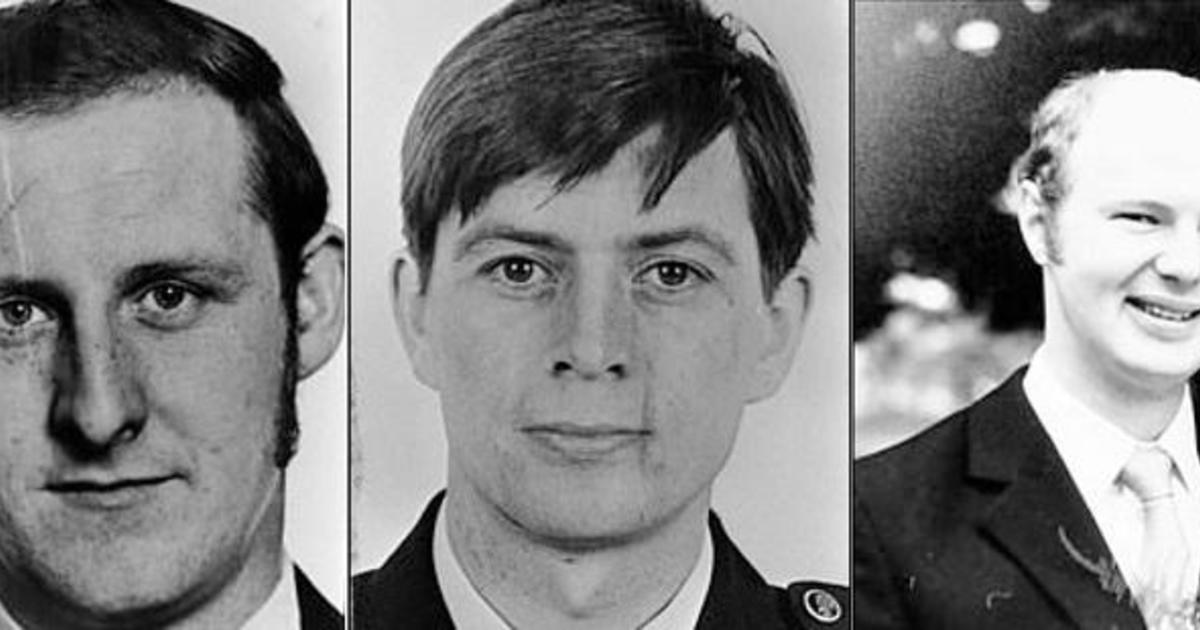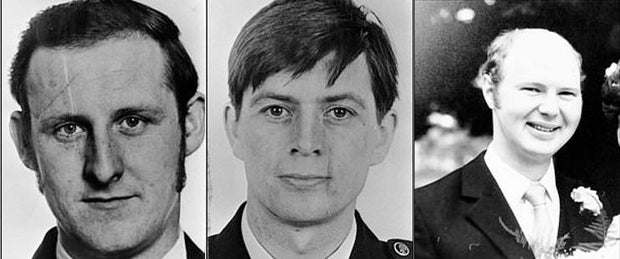A 61-year-old man appeared in a Dublin court Thursday after being arrested in connection with an Irish Republican Army car bombing that killed three Northern Ireland policemen in 1982.
Martin John McCauley was arrested Wednesday on an extradition warrant and will be prosecuted on murder charges in the deaths of Royal Ulster Constabulary Sgt. Sean Quinn and constables Allan McCloy and Paul Hamilton, said Iain Livingstone, head of Operation Kenova that investigated scores of murders, including dozens allegedly carried out by the IRA against informants.
“The decision to prosecute more than 40 years after the incident shows the rigor and application Kenova has applied to this investigation and that evidence will now be tested by a court,” Livingstone said. “Our thoughts remain with the three officers’ families who have continued to act with courage and great dignity over the past four decades.”
Charging McCauley with murder would mark a rare prosecution at this time over the violence known as “the Troubles” that reigned for three decades in a conflict involving Irish republican and British loyalist militants and U.K. security forces that left 3,600 people dead, some 50,000 wounded and thousands bereaved. The 1998 Good Friday peace accord largely ended the violence, though wounds are still raw for the victims.
Operation Kenova
A controversial law passed by the British government last year, the Legacy and Reconciliation Bill, would have given immunity from prosecution for most offenses by militant groups and British soldiers after May 1. But a Belfast judge ruled in February that the bill does not comply with human rights law. The government is appealing the ruling.
The Public Prosecution Service said the decision to press charges in the three murders was made in April before the law went into effect.
“Following careful consideration of all the available evidence in a file submitted by Operation Kenova, the PPS took a decision to prosecute one individual in relation to the 1982 murders of Sergeant Sean Quinn and Constables Allan McCloy and Paul Hamilton,” a spokesperson said in a statement.
The three officers were killed Oct. 27, 1982, when a bomb was remotely detonated along a road in Kinnego Embankment in County Armagh, Det. Sgt. Adrian Murray said in Dublin’s High Court.
According to the BBC, two people suspected of involvement at the time were shot dead two weeks later by the Royal Ulster Constabulary (RUC) officers.
Decades later, new scientific tests were done on material recovered from the time “which has given a much better understanding of the people responsible,” lead investigator John Boutcher said in 2020.
McCauley’s role in the bombing hasn’t been determined but there is forensic evidence tying him to the carefully planned attack, carried out by two members of the IRA, Murray said.
McCauley denies the accusations and will contest his extradition, a law firm representing him said in a statement.
A judge ordered McCauley held until a hearing in the Criminal Courts of Justice.
#Arrest #years #IRA #car #bombing #killed #police #officers #Northern #Ireland

